A quick exploration of the word ‘Kondele’ in the common search engines can be depressing.
Topping the searches are images of burning tyres, boulders blocking roads, violent protesters, clouds of teargas smoke, and mean looking police officers in combat regalia.
Top stories habour scary words like shootings, stone pelting, running battles, looting, destruction, crime, among others.
The situation has put out a dark image of Kondele, to the point that anyone, including those who have never set foot in the area only picture Kondele as a place of destituteness, hopelessness, and uninhabitable.
To government and security agencies, Kondele is synonymous to a crime scene, and always get descriptions such as violence hotspot, crime prone, among others.
But is this all Kondele is about?
Sixty-three year-old Mama Seline Adhiambo has a different picture of Kondele.
Mama Adhiambo was born in Siaya, and got married in Homa Bay where she lived in her early life.
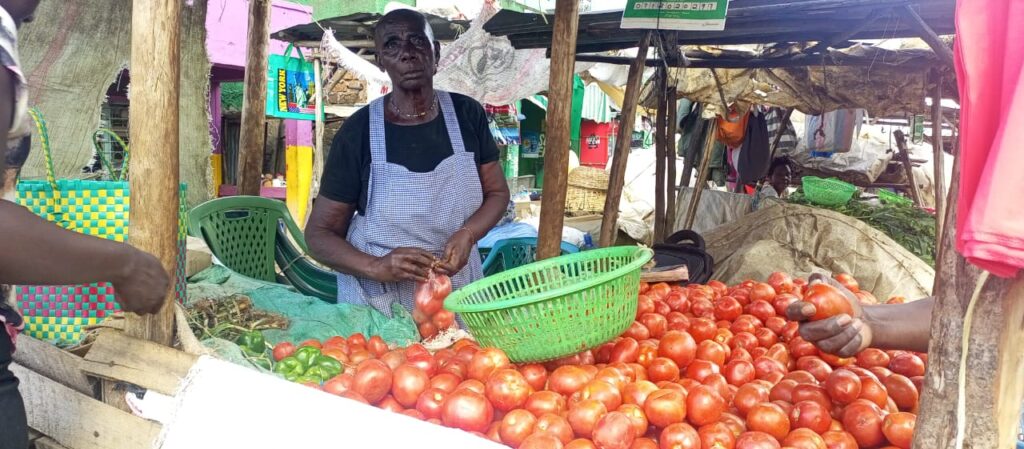
Kondele my livelihood
In 1980, Mama Adhiambo relocated to Kisumu, finding residence not far from Kondele market.
Two years later, she was introduced into business at the market, by a neighbor.
“It was the time traders were being moved from Flamingo Market (in Manyatta) to Kondele Market which was just beginning,” she said.
“The neighbour was relocating from town to the village after her husband lost his job,” she added.
And for the past 41 years, Mama Adhiambo has called Kondele home.
This business schooled my siblings, my children, and now my grandchildren. Two of my grandchildren are currently in secondary school; one in Form Two and another one in Form Three. This is where their fees come from
Mama Adhiambo
“I am a first born in our family, and I lost my dad when we were still young, and my mother was ailing,” she added.
This meant Adhiambo had to take up the role of a parent to her siblings, and her tomato business at Kondele came in handy.
“I used to get tomatoes from Tinderet (in Nandi County), on a lorry, and sell some on wholesale while some on retail at my stall,” she said.
“This business schooled my siblings, my children, and now my grandchildren. Two of my grandchildren are currently in secondary school; one in Form Two and another one in Form Three. This is where their fees come from,” said Adhiambo.
To her, Kondele is a peaceful home she has never thought of migrating from, and the violence tags about the place do not represent its correct image.
“Last week I was coming from a night vigil in church, and the van dropped me here at 3am. Young men came asking ‘motheri umetoka wapi?’ (where are you from, granny?) and they escorted me to the house,” she said.
John Obure, 54, has been a businessman here for the past 28 years.
Born and bred in Sakwa, Siaya County, Obure moved to Kisumu in the mid-1990s, and ventured into a butchery business.
“I established the first butchery inside Kondele Market,” he said.
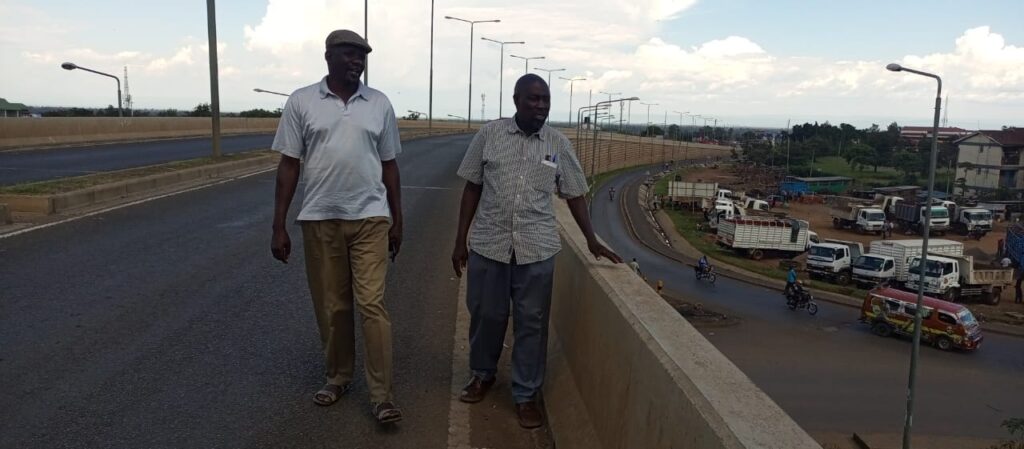
Kondele 24 hour economy
He has seen the transformation in Kondele, and today, he says there are more than 30 other butcheries in the area.
And just like Mama Adhiambo, Obure, commonly known in the area as ‘Wuod Tina’ (Tina’s son) has a different story of Kondele.
According to Obure, the image of violence, intolerance, crime, and all the evil things which murky the name of Kondele have not stopped the area from developing.
How many protests happen here in a year? Why do you media people only focus on isolated cases but do not give attention to the good things here?
John Obure
Kondele remains the only centre which has 24 hour economy in Kisumu County, with many businesses and essential services available all the time.
“How many protests happen here in a year? Why do you media people only focus on isolated cases but do not give attention to the good things here?” he poses as we begin our interview.
“This building here belongs to a Kikuyu, this other one belongs to a Luyha, this one here is for a Kisii, and down this street are Indian businesses. This one here is an Arab, and I can count many of them that we know. If we were intolerant as portrayed, would these businesses be standing?” he proceeds as we take a walk across Kondele.
During our daylong walk around Kondele, we see an image of a busy Kondele with no shreds of antagonism.
On one side is a stretch of construction material, ranging from bricks, stones, timber, wood, among others.
Tens of transport trucks are parked along the stretch, with some loading material, while some dropping.
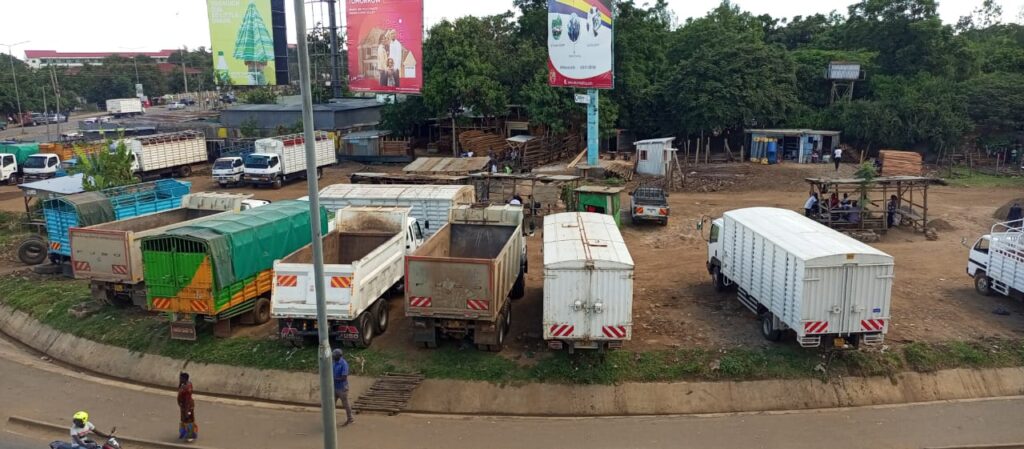
“You see these youths here, they are loaders. On this side are drivers who wait here as they work in turns in the matatus plying these routes,” says Obure.
“Anyone who thinks there are youths always idling in Kondele to wait for violence can come and count how many are idling here,” he adds.
Entertainment hub
Kondele lies at the border of Kondele, Migosi and Railways Wards. Its positioning at the cenre makes it the access point to Manyatta, Kibos, Migosi, Obunga, Nyawita, Arina, Mamboleo and other adjacent residential areas.
Along Kondele-Kibos road are tens of low and high end hotels, hardwares, supermarkets, clubs, churches, colleges, among other facilities.
The late George Ramogi, Owino Misiani, and the rest used to perform here
John Obure
The same is reported along Kakamega Road which is the access point to Migosi, Mamboleo, among other estates located along the road.
Obure reminisces the good old memories of Kondele which identified it as the main entertainment point in Kisumu.
“The late George Ramogi, Owino Misiani, and the rest used to perform here,” he says as he points a house which has since been transformed from a club into a multi-commercial building.
But what is the source of the broken image of Kondele?
Audi Ogada came to Kisumu in 1974, as a primary school pupil.
He attended Nyamasaria Primary School, and Muslim Secondary School before joining the now defunct Nyanza Commercial College to pursue a course in Sales and Marketing.
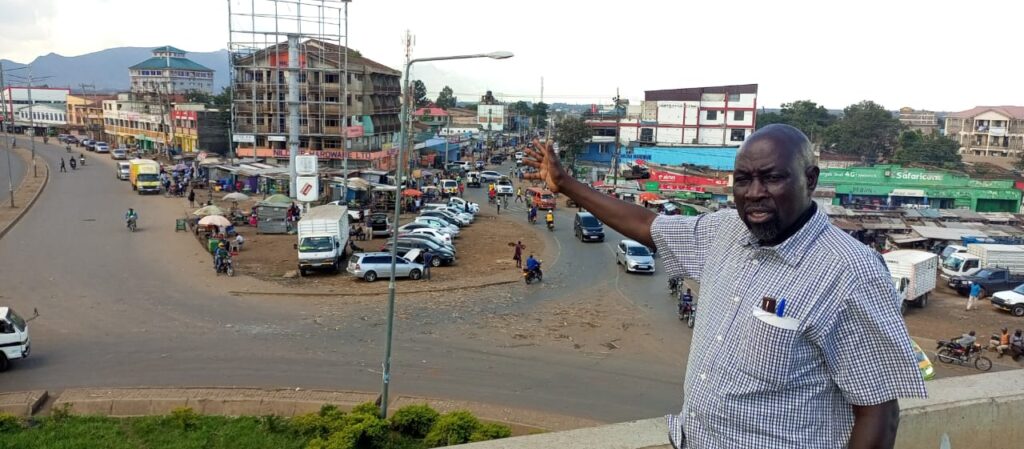
At first, Ogada lived in Nyalenda, before later moving to Kondele.
According to him, Kondele’s good name was damaged in the early 1990s by government operatives.
“You know, when a hyena wants to eat its children, it first accuses them of smelling like a goat,” says Ogada who is now the chair of Kisumu City Residents Association.
Ogada spent his youth as a political activist, where his relationship with Kondele was cemented.
He says during the fight for multipartism, the mobilization of the young people in Kisumu begun in Kondele.
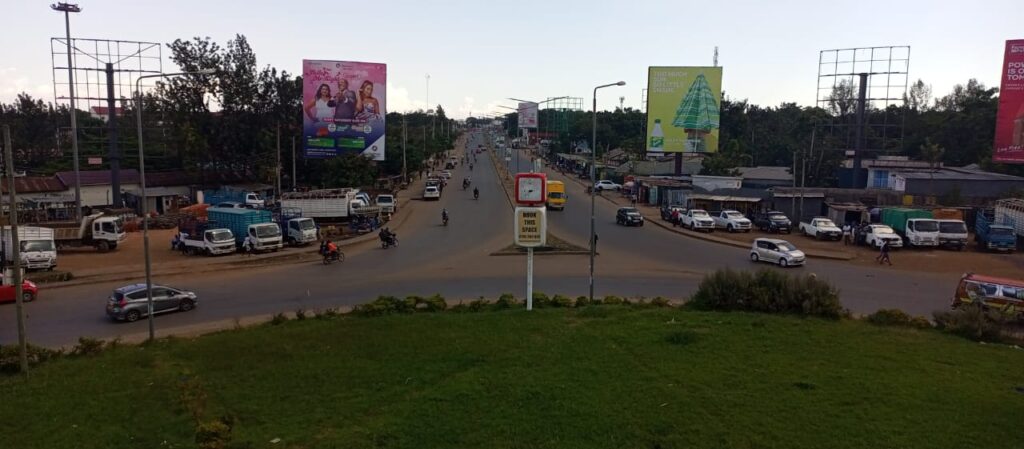
Kondele is slightly outside Kisumu Central Business District, and its vantage location near most of the estates in the city played a huge role in making it a desirable point for the mobilization.
According to Ogada, the lake Jaramogi Oginga Odinga was under house arrest in Kisumu’s Milimani Estate, with special branch police cordoning off his home.
And as the fight for multipartism was taking shape, youths from the area met in Kondele and planned how to get Jaramogi from house detention.
“It was from here that we could mobilize and move to Jaramogi’s home, get him out and bring him here to address the public,” said Ogada.
The youths baptised their informal movement Bagdad, borrowed from Bagdad in Iraq which was at was with the United States at the time.
“The US was a big force fighting Osama Bin Laden who was a small force. And we likened that to the Kenyan government which was a huge force, fighting young men like us with such vigour,” said Ogada.
This, Ogada said, angered the KANU government, which begun taking keen interest in the area.
“The government profiled this place, and deployed heavy security in a bid to tame the area. This profiling continues and any time there are political activities in this region, Kondele received undesirable attention from the security agencies,” said Ogada.
He says the negative profiling continues to haunt the area, with all the good things coming out of the political activism in the area swept under the carpet.
Kondele’s perceived evil not in vain
Ogada says every political agitation in Kondele has borne fruits to this country, and it is sad that the baggage of negative profiling continues to be peddled by government and security agencies, supported by biased media reports.
“The agitations in the 1990s led to the repealing of Section 2A of the then Constitution, and Kenya became a multiparty state,” said Ogada.
“The agitations in the 2000s led to the 2010 Constitution which came with so many benefits, including devolution,” he adds.
The agitations in the 1990s led to the repealing of Section 2A of the then Constitution, and Kenya became a multiparty state
Audi Ogada
“The agitations went ahead to inform police reforms which turned it from a force to a service, and everyone enjoys the fruits.”
“I can go on and on and on to mention the benefits of the agitations in Kondele, but no one wants to tell those stories. All you hear in the media is negativity, wars and evil,” he says.
Kondele’s bad name hurting youths
Ogada’s sentiments are echoed by Joshua Owino.
The 45-year old shoe shiner at Kondele Roundabout has been around for the past 19 years.
Apart from his shoe shinning and repairing job, Owino is also the chair of Kondele Bunge la Wananchi, an informal community forum in the area.
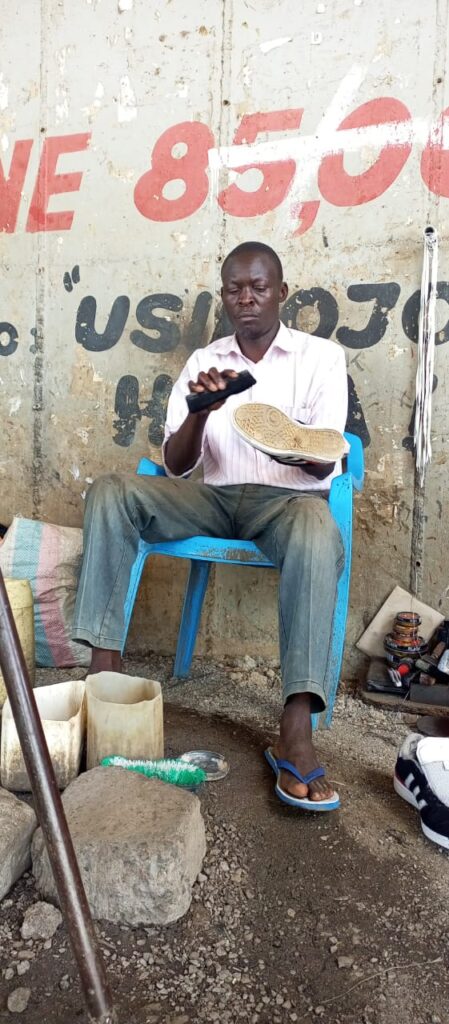
Owino’s grassroot presence has put him in the best position to understand the issues around Kondele.
Today you go to get loans from local financial institutions, and you indicate that you come from Kondele, you are likely to miss out, or rather get tougher terms
Joshua Owino
He says the bad image of Kondele has negatively impacted on the youths of the area.
“Today you go to get loans from local financial institutions, and you indicate that you come from Kondele, you are likely to miss out, or rather get tougher terms,” says Owino.
“The notion out there is that people from Kondele are rowdy, difficult, and criminals,” he adds.
Obure asserts this, saying if Kondele was that bad, it wouldn’t be thriving in business as the case now.
“We know a number of police officers at Kondele Police Station who do all it takes to reverse any attempts to transfer them from here. Which police officer would be happy to work in an area with such ills as portrayed of Kondele?” he notes.
“Some of them have businesses here, and continue to invest. We have a very good relationship with the police,” he adds.
No bad blood between police and public
Obure notes that the first five police houses at Kondele Police Station were built by residents and investors in the area.
“The late Shem Kwega, and Samtech Nyakado led the fundraiser and we put up the houses and asked the authorities to give us officers. Why would we do that if we hate police?” he posed.
Kisumu County Police Commander Aliphonce Kimanthi Wambua did not however comment on the allegations of profiling, and relationship between police and the residents, claiming a busy schedule throughout the period of producing the article.
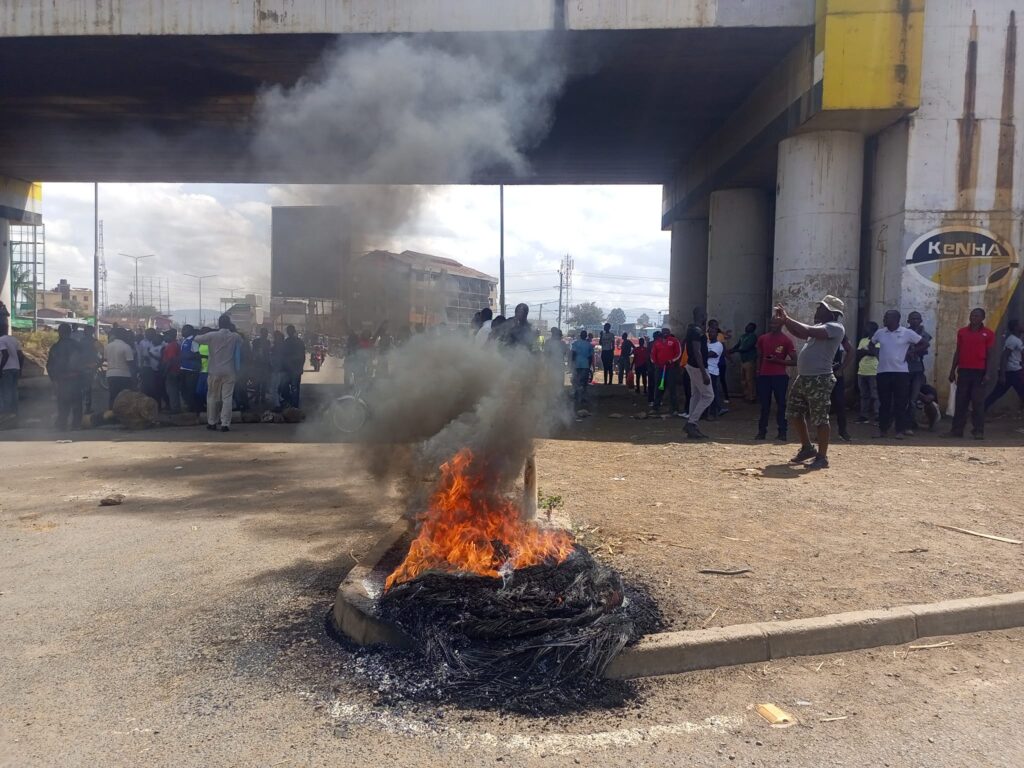
For 46-year-old Samwel Orek, Kondele has been home to him since birth.
He operates a construction wood business in the area, in addition to other investments in rental houses.
He supports Owino’s assertions that the bad name has cost residents and investors in Kondele.
“Leaders do not focus meaningful empowerment to youths here, despite the youths being active and hardworking. It is this lack of empowerment that sometimes lead the youth into spontaneous crime reported around,” he said.
Kondele peace mausoleum
Ogada, Owino and Obure are part of the stakeholders in Kondele who, in their efforts to change the narrative about the area, have presented petitions to the County Government to establish a peace mausoleum at Kondele Roundabout.
“We want the facility to tell the real stories of Kondele, with evidence, and use it as a centre for peace promotion,” said Ogada.
“Kondele is key in shaping the country and county’s political direction, and any politician who gets a nod from Kondele registers public acceptance in whatever seats they are going for,” he added.
Kondele Ward MCA Joachim Oketch confirmed that he received the petition, and it is a work in progress.
But before this can be achieved, County Commissioner Hassan Allason maintains that Kondele remains a hotspot not because of negative profiling, but because of the nature of events there.
“Until such a time they prove that they are not violent, Kondele remains a hotspot,” he said.
He denied claims of government profiling the area.
According to Mr Allason, Kondele has previously been used as a yardstick for peace in Kisumu.
“All protests begin in Kondele, and when Kondele is peaceful, the other areas are peaceful,” he added.
He however noted that there are government initiatives to engage the youths in the area in a bid to change their attitudes as a way of promoting peace and cohesion.
“Police only go there to protect lives and property. But in many instances, they turn against the police. How many times has Kondele Police Station been raided and stoned by the protesters?” he posed.
